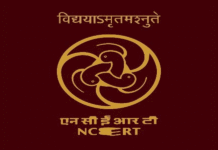The government has unveiled a scheme to set up Pashu Aushadhi Vikray Kendras, dedicated retail outlets selling affordable generic veterinary medicines, aimed at improving animal healthcare in rural and remote areas. The initiative is part of the Livestock Health and Disease Control Programme and is intended to reduce treatment costs for livestock owners, particularly farmers and small-scale herders.
Under the scheme, Pashu Aushadhi Vikray Kendras can be operated by registered Pradhan Mantri Kisan Samridhi Kendras (PM-KSKs) and cooperative societies. The outlets will sell only veterinary medicines supplied by the Pharmaceutical and Medical Devices Bureau of India (PMBI), ensuring both quality and price control. By sourcing drugs centrally and distributing them through these specialised centres, the government seeks to make critical animal health products more accessible in underserved regions.
Eligibility criteria for setting up a Kendra are clearly defined. Applicants must have at least 120 square feet of space, either owned or rented, and must employ a registered pharmacist holding a B. Pharma or D. Pharma degree. A valid drug sale licence from the State Drug Control Authority is mandatory. To prevent over-concentration, only one Kendra will be allowed per revenue block, with preference given to areas with high livestock populations.
The scheme offers significant financial support to encourage participation. Store operators will receive a 20% margin on the selling price of each medicine (excluding tax) as operational revenue. A one-time incentive of ₹1.5 lakh will be provided for Kendras opened in the Union Territory, and a monthly incentive of up to ₹20,000 will be offered based on stock availability and sales performance. These measures aim to make the business model sustainable while keeping medicines affordable for farmers.
In addition to veterinary medicines, Kendras will be permitted to sell ethno-veterinary products and certified animal feeds. All transactions must be processed through an official Point-of-Sale (PoS) system to ensure transparency and accurate reporting. This structure not only helps in inventory management but also aids government monitoring of supply and demand trends in rural animal healthcare.
The scheme is a joint effort by the Department of Animal Husbandry and Dairying, the Ministry of Cooperation, and PMBI. It reflects a broader strategy to improve livestock health as part of rural development, given the role healthy animals play in both agricultural productivity and household income security. Illnesses in livestock can significantly impact the livelihoods of farmers, particularly in remote regions where veterinary services are sparse.
By offering medicines at controlled prices, the Kendras are expected to reduce the financial burden on livestock owners who often resort to costly private suppliers. Improved access to treatment can also reduce the spread of preventable diseases, improve milk and meat yields, and enhance the overall quality of livestock products.
Applicants must submit their requests online through the Department of Animal Husbandry and Dairying (DAHD) portal and pay a registration fee of ₹5,000. For stores established in aspirational districts, this fee will be waived, further incentivising expansion in underdeveloped areas. The application process has been designed to be streamlined, allowing faster establishment of stores once eligibility criteria are met.
The initiative also supports employment generation by creating opportunities for pharmacists, store operators, and logistics providers in rural regions. Cooperative societies and PM-KSK operators already engaged in agricultural services are seen as ideal candidates to run these outlets, given their familiarity with the needs of the farming community.
For livestock owners, the scheme promises a reliable source of affordable, quality-assured medicines within reachable distance, cutting down on the delays and expenses involved in procuring veterinary supplies from urban centres. The government anticipates that over time, these Kendras will become central hubs for animal healthcare, complementing the services provided by veterinary hospitals and field clinics.





